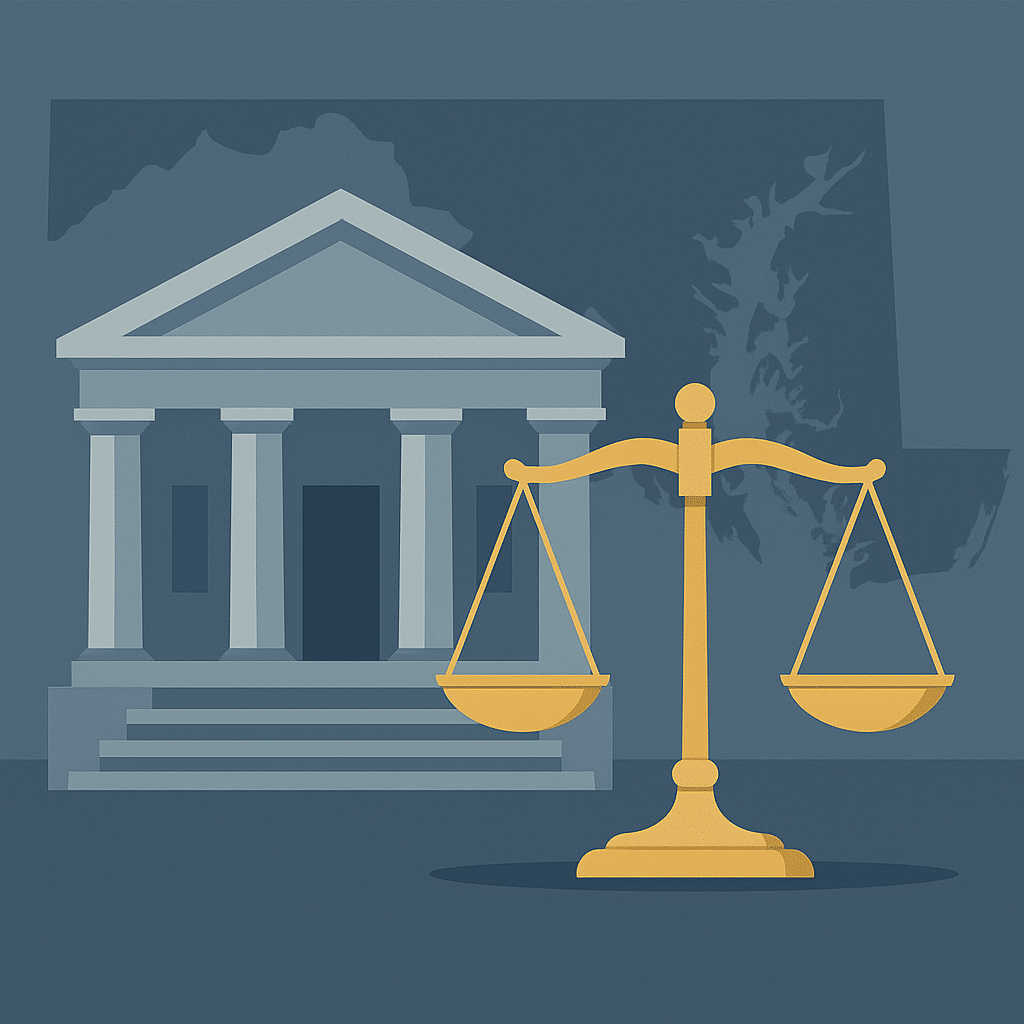
If you’ve been arrested in Maryland and are being evaluated for unsecured bail, understanding what that means can make a big difference in your case. At Southern Maryland Criminal Defense, we regularly help clients in Prince George’s, Charles, Calvert, and St. Mary’s Counties navigate bail hearings and pretrial release options. Here’s what you need to know about unsecured bail and how it works in Maryland courts.
What Is Unsecured Bail?
Unsecured bail, sometimes called an unsecured bond or signature bond, is a type of bail that allows a defendant to be released from custody without paying money or posting property upfront. Instead, the defendant signs a written promise to appear in court and follow all conditions of release. The bail amount is set by the court but only becomes payable if the defendant fails to appear or violates their conditions.
In other words, unsecured bail is based on trust. You’re released on your word and your record of responsibility. If you meet all court requirements, you owe nothing. But if you skip court or break the terms of release, you may be ordered to pay the full bail amount, and a bench warrant will likely be issued for your arrest.
How Unsecured Bail Differs from Secured Bail
The biggest difference between unsecured and secured bail is the need for collateral. With a secured bond, the defendant—or someone on their behalf—must pay cash or pledge property before release. That money or property can be lost if the defendant fails to appear in court. With unsecured bail, no payment is made upfront, but the full amount becomes due if the defendant violates their release conditions.
Because no collateral is required, unsecured bail is often seen as more lenient and accessible. However, courts don’t grant it lightly. The decision depends on several factors, including the nature of the charges and the defendant’s reliability.
Who Qualifies for Unsecured Bail?
Courts in Maryland consider multiple factors when deciding whether to allow unsecured bail. Common factors include:
- Severity of the charges: Less serious or nonviolent offenses are more likely to qualify.
- Criminal history: A clean or minimal record increases your chances.
- Community ties: Employment, family, and long-term residence in the area show stability.
- Risk of flight: Defendants who pose little or no flight risk are better candidates for unsecured release.
In Southern Maryland, demonstrating that you have strong ties to your community—such as steady work, family responsibilities, or local involvement—can help persuade a judge to approve unsecured bail.
What Happens If You Fail to Appear?
If you fail to appear in court or violate your release conditions, the consequences can be severe. The court may:
- Order you to pay the full bail amount set at your release.
- Issue a bench warrant for your arrest.
- Revoke your release and hold you in custody until your trial.
- Make future bail decisions more restrictive or deny bail altogether.
Even though unsecured bail doesn’t require an upfront payment, the financial and legal penalties for violating it can be serious.
Benefits and Risks of Unsecured Bail
Benefits:
- You avoid paying large sums or pledging property before release.
- You can return to work, care for your family, and prepare your defense from home.
- It demonstrates trust from the court and may reflect positively on your character.
Risks:
- You’re fully responsible for meeting every court condition.
- Missing court or violating terms can trigger significant financial penalties.
- Your chance of getting unsecured bail in the future may decrease if you default.
How a Maryland Criminal Defense Lawyer Can Help
Having a defense attorney who understands the local courts can make a major difference during your bail hearing. A skilled lawyer can present evidence of your community ties, employment, and character to support an unsecured release request. They can also help you understand what conditions you must meet to stay in compliance and avoid costly mistakes.
At Southern Maryland Criminal Defense, we’ve represented clients facing all types of charges in Prince George’s, Charles, Calvert, and St. Mary’s Counties. We understand how Maryland judges approach bail and how to build a strong argument for your release.
Conclusion
Understanding unsecured bail is essential for anyone facing criminal charges in Maryland. It can mean the difference between going home and sitting in jail while your case moves forward. While unsecured bail doesn’t require upfront payment, it carries serious obligations. If you’ve been arrested or have a loved one awaiting a bail decision, contact a Southern Maryland criminal defense lawyer to discuss your options and protect your rights from the very start.
